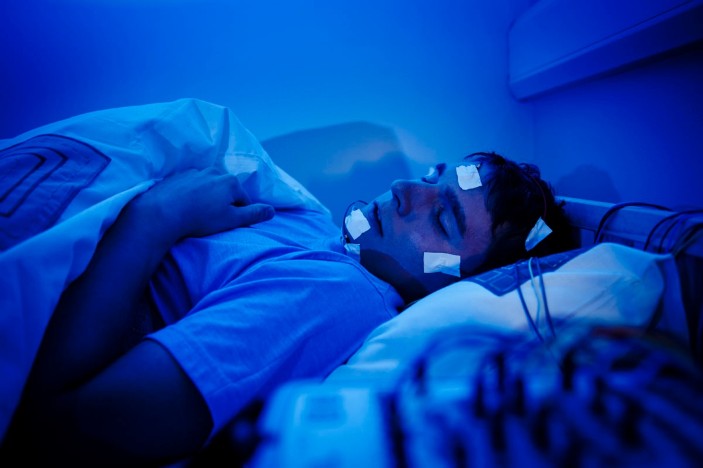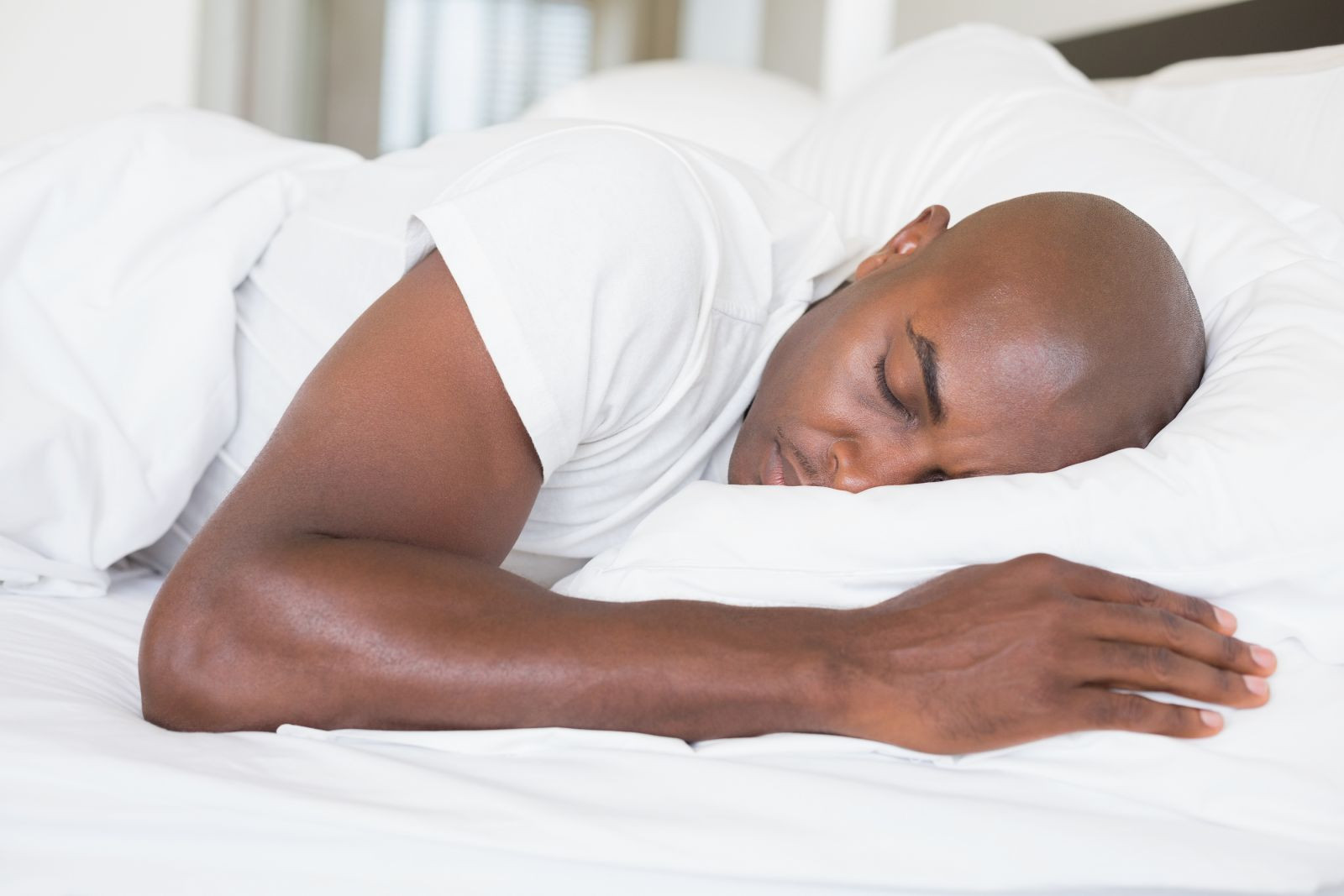Cognitive Behavioral Therapy for Insomnia (CBT-I) - Proven Methods
Cognitive Behavioral Therapy for Insomnia (CBT-I) - Proven Methods
Blog Article
Efficient Therapy Solutions for Taking Care Of Sleep Disorders and Enhancing Peaceful Sleep
In the world of healthcare, the monitoring of rest problems and the quest for relaxed sleep are essential elements of general well-being. As we navigate the complex landscape of sleep problems and look for to boost our rest experience, a much deeper understanding of these therapy options might hold the key to unlocking a much more rejuvenating and fulfilling restorative journey.
Cognitive Behavior Therapy for Sleep Problems (CBT-I)
Cognitive Behavior Modification for Sleeping Disorders (CBT-I) is an organized, evidence-based treatment approach that concentrates on attending to the hidden factors adding to sleep disturbances. This type of treatment aims to modify behaviors and thoughts that aggravate sleeping disorders, inevitably advertising healthy and balanced rest patterns. CBT-I commonly involves numerous vital elements, consisting of cognitive treatment, rest restriction, stimulation control, and sleep hygiene education and learning.
Cognitive treatment aids people determine and transform negative idea patterns and ideas concerning rest that might be hindering their ability to drop or remain asleep. Sleep restriction involves restricting the quantity of time spent in bed to match the individual's real sleep period, thus increasing sleep effectiveness (insomnia specialist). Stimulus control techniques aid develop a solid organization in between the bed and sleep by urging people to head to bed just when sleepy and to prevent participating in stimulating tasks in bed
Moreover, rest health education and learning concentrates on creating healthy and balanced sleep behaviors, such as keeping a consistent rest schedule, producing a relaxing going to bed regimen, and optimizing the sleep setting. By addressing these factors thoroughly, CBT-I offers a reliable non-pharmacological treatment for handling sleep problems and enhancing total sleep top quality.
Rest Hygiene Practices
Having developed the structure of cognitive restructuring and behavior modifications in dealing with sleeping disorders via Cognitive Behavior modification for Sleeping Disorders (CBT-I), the focus currently changes in the direction of discovering vital Rest Health Practices for maintaining optimal rest high quality and general health.
Sleep hygiene practices include a series of habits and ecological factors that can significantly affect one's capacity to fall asleep and remain asleep throughout the night. Regular sleep and wake times, creating a relaxing bedtime routine, and enhancing the rest environment by maintaining it dark, quiet, and cool are crucial elements of great rest health. Limiting exposure to displays prior to going to bed, avoiding energizers like caffeine close to bedtime, and involving in routine physical task throughout the day can also promote much better sleep top quality.
Moreover, exercising leisure strategies such as deep breathing exercises or meditation prior to bed can aid calm the mind and prepare the body for sleep. By integrating these sleep health methods into one's day-to-day regimen, individuals can develop a healthy sleep pattern that supports restful rest and total health.
Relaxation Techniques and Mindfulness
Implementing relaxation methods and mindfulness practices can play an essential duty in fostering a sense of calm and advertising top quality rest. Additionally, directed images can assist move people to a relaxed area in their minds, aiding in tension reduction and enhancing sleep high quality.
Mindfulness techniques, such as meditation and yoga, are also efficient in promoting relaxation and enhancing sleep. Mindfulness motivates individuals to stay present in the moment, releasing bother with the past or future. By incorporating these techniques right into a bedtime regimen, people can signify to their bodies that it is time to prepare and relax for sleep. Generally, incorporating relaxation methods and mindfulness practices can substantially add to taking care of rest conditions and improving overall sleep quality.

Medicine Options for Rest Disorders
After checking out leisure strategies and mindfulness methods Recommended Site as non-pharmacological interventions for improving sleep quality, it is important to take into consideration medicine alternatives for people with sleep problems. In situations where way of living changes and treatment do not offer adequate relief, medication can be a valuable tool in Full Report managing sleep disruptions.
Typically prescribed drugs for sleep disorders consist of benzodiazepines, non-benzodiazepine hypnotics, antidepressants, and melatonin receptor agonists. Antidepressants, such as trazodone, can be valuable for individuals with co-occurring clinical depression and rest disturbances - insomnia therapy.
It is crucial for people to talk to a doctor to determine one of the most proper medication choice based on their certain sleep problem and medical background.
Light Therapy for Body Clock Policy
Light treatment, likewise called phototherapy, is a non-invasive therapy technique made use of to control body clocks and improve sleep-wake cycles. This treatment includes exposure to brilliant light that mimics natural sunshine, which helps to reset the body's biological rhythm. By subjecting people to particular wavelengths of light, usually in the morning or evening depending upon the wanted impact, light treatment can efficiently adjust the body clock to advertise wakefulness throughout the day and enhance relaxing rest in the evening.
Research study has actually shown that light treatment can be particularly valuable for individuals with body clock disorders, such as delayed rest stage disorder or jet lag. It can also be valuable for those experiencing seasonal depression (SAD), a kind of clinical depression that normally takes place throughout the winter season when natural light exposure is minimized. Light treatment is usually well-tolerated and can be made use of along with various other treatment techniques for sleep problems to maximize end results and boost general rest quality.
Conclusion
Finally, efficient therapy services for handling sleep disorders and enhancing restful sleep consist of Cognitive Behavioral Treatment for Sleeping Disorders (CBT-I), sleep hygiene techniques, leisure strategies and mindfulness, medicine choices, and light therapy for circadian rhythm law. These approaches can assist people boost their rest high quality and overall health. It is important to speak with a doctor to establish one of the most ideal method for attending to rest concerns.
As we internet browse the intricate landscape of rest conditions and seek to enhance our rest experience, a deeper understanding of these treatment services may hold the trick to unlocking an extra refreshing and satisfying corrective journey.
Rest constraint entails limiting the quantity of time spent in bed to match the person's actual rest duration, consequently boosting rest efficiency. Regular rest and wake times, producing a relaxing bedtime routine, and optimizing the rest setting by keeping it dark, peaceful, and cool are important components of good rest hygiene. Light treatment is usually well-tolerated and can be made use of in combination with various other treatment techniques for sleep problems to optimize results and boost total sleep quality.

Report this page